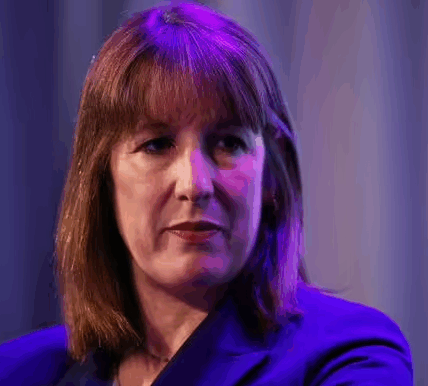
Liz Truss has backed plans to stop the state splurging too much cash (Image: Getty)
Former Prime Minister Liz Truss is backing calls to stop the state printing “mountains of cash to fund unaffordable policies.”
Reform UK MP Rupert Lowe will today demand that politicians be given the right to block quantitative easing.
It comes as Chancellor Rachel Reeves could be forced to unleash another tax hiking blitz as the UK’s long-term government borrowing costs hit their highest level since 1998.
The interest rate on 30-year gilts soared to 5.22 per cent, in a fresh hammerblow for the Chancellor.

Reform MP Rupert Lowe will demand changes to QE policies (Image: Getty)
But Mr Lowe will argue the Bank of England’s money printing spree is driving up inflation.
And the Reform MP will demand more restrictions on Threadneedle Street.
He said ahead of a vote in Parliament: “I am today proposing legislation to Parliament to prohibit quantitative easing without the express consent of democratically elected MPs.
“QE is essentially the state printing money, billions and billions, to bail itself out – devaluing all of our earnings and savings in the process.
“If you insert vast amounts of new cash into the system, what does that do to existing funds? It all becomes worth less. Inflation, and lots of it.
“QE has now become a mainstream tool to avoid the Darwinian reality of capitalism.
“I want the state to live within its means, just as the rest of us are forced to do so.
“It raises money through tax, it can then spend that money. It should not be permitted to print mountains of cash to fund unaffordable policies – lockdown is the primary example of that.
“Let’s have a state that is as accountable to its people, as the people are to the state.”
Former Prime Minister Liz Truss responded: “Good. The Government’s monetary policy should be held to account.”
Ms Reeves announced at the Autumn fiscal package that she was ramping up borrowing for more public spending and changing debt rules to boost investment.
However, the economy is stalling with businesses warning of price rises and job cuts due to the extra burden.
Some economists believe she will be forced to come back for more taxes to avoid austerity in the state sector.
The yield on 30-year gilts – the return on Government bonds – increased on Tuesday by four basis points to 5.22%, surpassing the spike seen in 2023.
It ramps up the pressure on the Treasury’s headroom for increased public spending, amid the prospect of higher interest costs.
The rise comes amid a fresh barrage of bond sales and investor concerns over the threat of stagflation.
Rates have also remained higher due to predictions that interest rates will come down slower in the UK than previously expected.
Globally, there has been a wider sell-off in government bonds in recent months in the face of worries that President Donald Trump could introduce a tariff policy which would be inflationary for many international economies.
On Tuesday, the UK’s Debt Management Office (DMO) sold £2.25 billion on 30-year notes, with a yield of 5.19%.
It is also expected to sell a further £4.25 billion of notes on Wednesday, while the Bank of England is also reducing its balance sheet through the sale of some securities as part of its quantitative tightening process next week.
Last year, the DMO said it expected to sell about £296.9 billion of notes over the 2024-25 fiscal year.
Shadow chancellor Mel Stride said the rise in gilt yields was “yet more evidence Labour have driven our economy into a ditch”.
Writing on X, formerly Twitter, he added: “They talked it down. They taxed the life out of it. They’ve racked up borrowing. They killed growth. Now we are all paying the price with higher inflation, fewer jobs and lower wages.”


